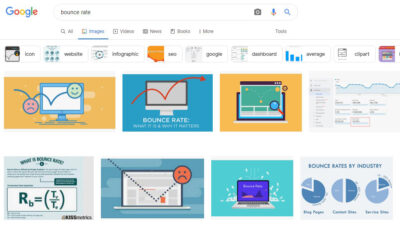SEO stands for Search Engine Optimization, which is an effort to optimize a website to get the best ranking on search engines. In this article, we will discuss what SEO is, how it works and how it can be implemented on a website.
What is SEO (Search Engine Optimization)?
What is SEO?
If you are someone who is new to the world of website management, then sooner or later you will definitely be dealing with SEO. Then, what is SEO? Search Engine Optimization or SEO for short is a series of efforts to optimize a website. This optimization is done so that search engines can determine whether a website deserves to be displayed in the top position of search results or not.
Because the internet is a very dynamic place, SEO is not a one-time thing. SEO is an ongoing process that requires patience. So, before carrying out the practice, you must first understand how search engines work in ranking websites based on several points of assessment.
In addition to explaining the meaning of SEO, this article will also explain how SEO works, and its relationship to website speed.
How SEO Works
As mentioned earlier, the function of SEO is to optimize the website so that users can find your website using certain keywords.
Although when you type certain keywords on Google and the search results can appear right away, the process that occurs in the search engine is not as simple as imagined. In fact, search engines are already running before you type anything in the search field and hit the Enter key.
There are three processes that search engines perform for each search made:
- Crawling, is a process in the early stages, where search engines will collect information from the entire website – from one page to another, from one link to another.
- Indexing, is the process after the information has been collected, where the web crawler will store it in the entry list: index
- Ranking, ranking results will be displayed in order, based on the search that is considered the most relevant and appropriate
To ensure the quality of search results, search engines use a set of standard rules called algorithms. Search engine algorithms function to ensure internet users get relevant information from trusted sources.
In addition, there is also what is called page authority. Page authority is a scoring system from 1 to 100 developed by Moz, to predict the ranking of a website in search engines. This system will help you understand what qualifications search engines use to determine the best search results.
You can use link explorer to check page authority. Enter the URL you want to check for analysis results. The information obtained from the link analysis will be very useful for you to improve the quality of the website.
SEO Implementation
One of the reasons why SEO needs your sustainability and persistence, is because search engines are always updating their algorithms to provide the best search results. Always follow developments and use the latest approaches, so that the SEO optimization you do can work as much as possible.
There are two types of SEO that you can do, namely on page SEO and off page SEO.
On-page SEO
As the name implies, this type of SEO is website optimization that is carried out from within, in the form of adjustments and settings for various elements on the website.
Some of the efforts that include on page SEO include:
- Well formatted URL
- No keyword stuffing, or attempts to manipulate website rankings in search engines
- Image alt text
- Use proper headings (H1, H2, etc.)
The following are some things that must be considered in on page SEO.
1. Keyword Research
Keywords or keywords are specific words that are typed by users in search engines when they want to search for certain content or information. Choose the right keywords to bring in organic traffic from the content you create for your website.
To find out what keywords are often used by users when accessing websites, you need to do keyword research. After that, make sure the targeted keywords are in the title, heading and body of your content.
2. Technical Overview
As a website manager, you can ease the work of search engines in the crawling process, by doing these things:
- Manage sitemap
- Replace broken links (broken links)
- Avoid redirect errors
- Fix error URL
3. Optimization
In general, there are three main things that your website must have in order to be optimized properly:
- A good structure, so that it can make it easier for search engines to identify which pages are important on your website
- Easy navigation, so it can make visitors feel at home for long on your website
- Relevant content, so that it has a greater potential to bring in more quality traffic.
4. User Experience
As a website owner, you want everyone who visits your website to be satisfied. The satisfaction of visitors when accessing your website is what is most closely related to the user experience.
Creating a positive user experience means that you know what your visitors need and want, and provide the answers on your website. If your website is an online store, offer products that are relevant or according to the needs of visitors. Create categories to simplify the product search process. Also add detailed information on each product displayed on the website, including relevant images.
If you are a blogger, organizing content by category will provide easy navigation for site visitors. Do not forget to set the layout or layout. An attractive website display will bring in new visitors and make them last longer.
And above all, don’t forget to make sure your website has a good loading speed. Whatever type of website you manage, make it easy for users to explore your website with maximum loading speed.
Also read: On Page SEO – Understanding and How to Apply It
Off-Page SEO
Although you could say that it is not too technical when compared to on page SEO, it does not mean that off page SEO is no less important. Basically, off page SEO is a series of efforts to promote a website, so that people know that your website is worth visiting.
Following are some ways to do off page SEO:
1. Content Marketing
Because of its high level of effectiveness, lately content marketing is increasingly being relied on to increase website rankings in search engines. Several things can be achieved by implementing a good and structured content marketing strategy, including:
- Bringing in new visitors
- Influence visitors to buy the product or service offered
- Build a good business reputation
2. Public Relations
Public relations (PR) activities are carried out so that your brand is increasingly recognized by the public. Generally, there is a separate budget that must be prepared for good PR practice. The importance of PR or public relations for your business, among others:
- Build brand awareness
- Ensure that the information about your business that is disseminated in the community is correct
- Improve community relationships
Also Read: What is Backlink and How to Get It?
SEO Link with Website Speed
Google has determined that loading speed is a determining factor in the ranking of a website in search engines accessed via desktop devices. In 2018, the company started to apply the same rules to mobile devices.
The thing that underlies Google’s decision, is basically to improve the user experience in general on the internet. So, it’s as if Google “forces” the website to have a high loading speed, if you want to get a high ranking in search results. If the speed decreases, Google will give a penalty, automatically the ranking of the website in search engines will decrease, and the traffic obtained will also decrease.
You can prove this yourself by trying to find any keywords in the browser search field. Websites that appear in the first rank must have a better loading speed than websites that are ranked below. Try using a tool like GTmetrix to check how long it takes a website to display its pages perfectly.
However, if discussed further, illustrating the loading speed of a website is not that simple. Website performance is closely related to user behavior and SERP (Search Engine Result Page). Website speed isn’t just about the numbers that Google’s search algorithm uses to calculate page rank. There are many things that affect SEO in terms of loading time.
If a website tends to be slow, visitors will give a negative response, as a result the bounce rate will be high. Google will also analyze other aspects that lead to a website being penalized, such as poor quality content and design and navigation that actually triggers user dissatisfaction.
That’s an article from QicKey about what seo is, hopefully it’s useful.
Read:










